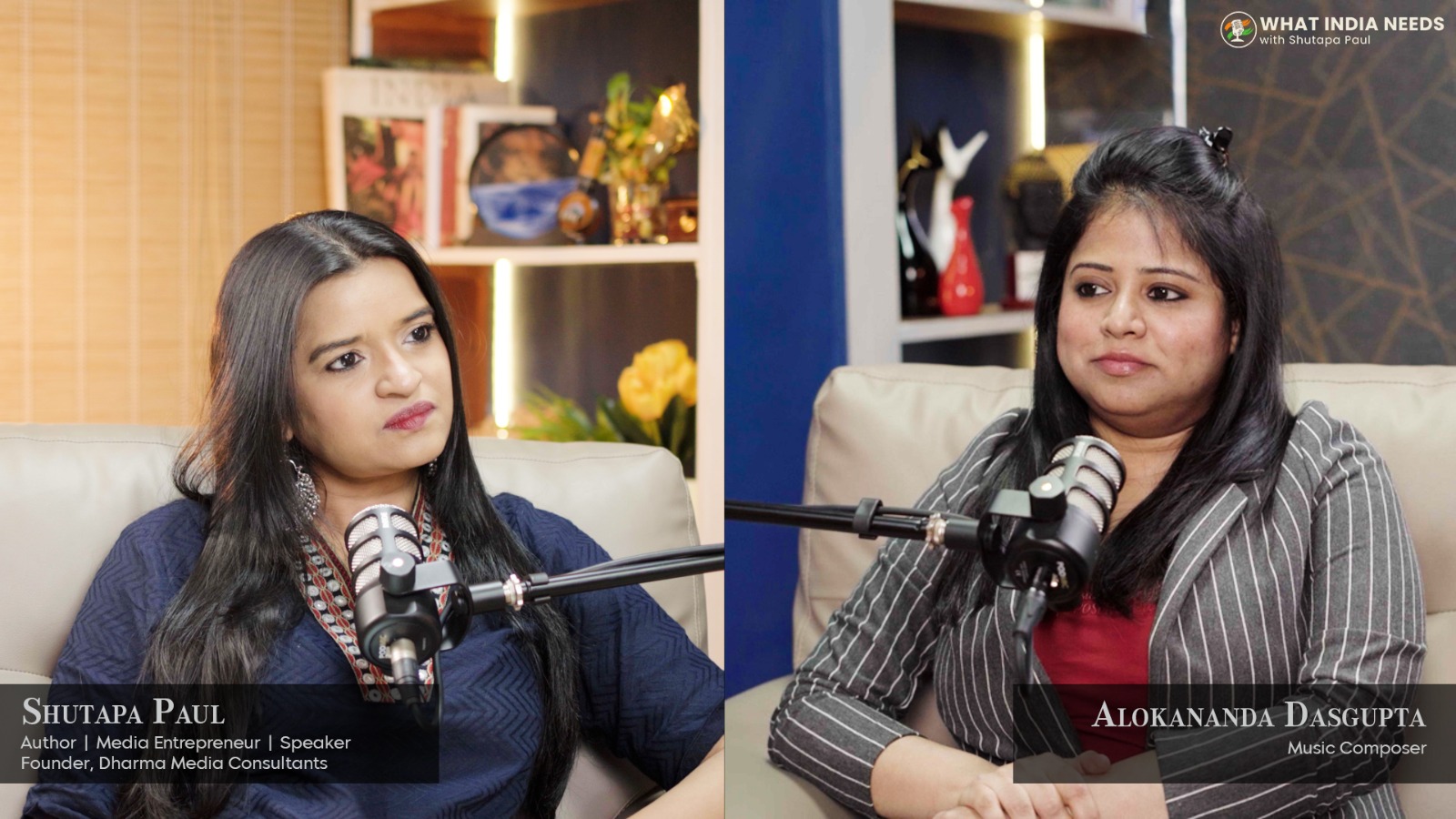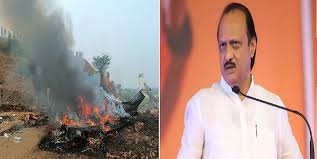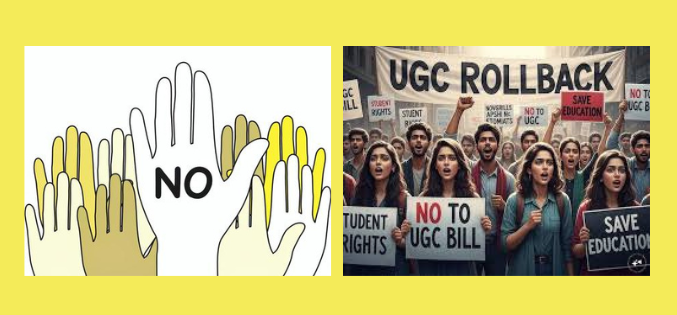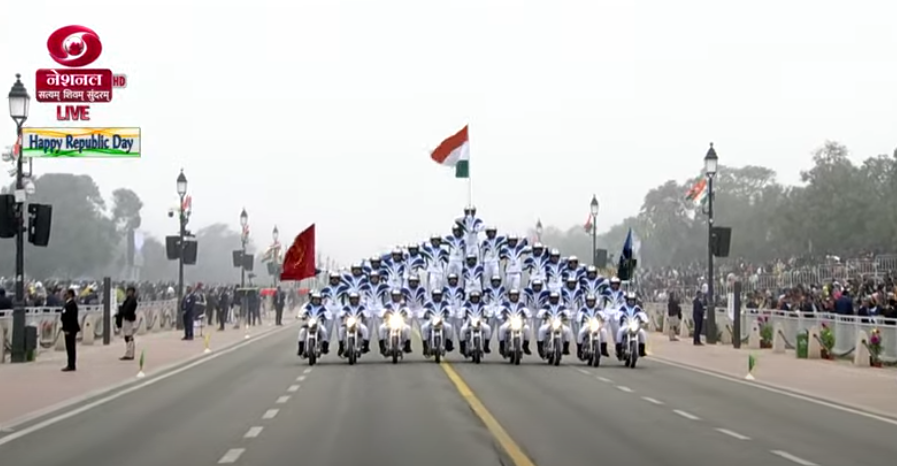
Mumbai: As International Women’s Day approaches, the conversation around women’s representation in Indian cinema remains as crucial as ever. In a special episode of the What India Needs! podcast, award-winning music composer Alokananda Dasgupta—known for Sacred Games, Jubilee, and Trapped—joined media entrepreneur and author Shutapa Paul to discuss gender bias in film music, systemic challenges in the industry, and the need for real, lasting change.
While actresses and playback singers receive widespread recognition, women in technical roles—such as composers, sound technicians, and music producers—often go unnoticed. Dasgupta acknowledged the progress but pointed out persistent gaps, saying that while some areas have improved, representation in others is still invisible. Even where women are present, their roles are often not as impactful or recognized as they should be.
The gender disparity in the industry is stark. Paul highlighted a 2019-2020 ORMAX Media study that found women held only 8% of Head of Department (HoD) positions in Indian cinema, a strikingly low figure compared to corporate India’s 37% female representation. Dasgupta emphasized that real change requires a shift in mindset, stating that unless attitudes evolve, the percentage will never reach 50%. She also pointed out how deep-rooted biases prevent women from entering technical fields, as cultural and systemic barriers remain strong despite efforts to break them.
Despite growing conversations about inclusivity, implementation remains a challenge. While many directors and producers claim to support women in technical roles, Dasgupta noted that actual opportunities often fall short. She also highlighted the biases women face in the industry—when they assert themselves, they are often labeled difficult or uncooperative, which discourages many from speaking up. Though Dasgupta herself hasn’t faced direct discrimination, she recognizes that many women struggle in male-dominated spaces. She believes in focusing on her craft and letting her work speak for itself, emphasizing that music has no gender and that she asserts her rights through her professionalism and talent rather than demanding special treatment.
One of the biggest challenges in the Indian film music industry is the lack of a clear royalty structure for background scores. While organizations like the Indian Performing Right Society Limited (IPRS) have made improvements, the system still lacks a structured framework similar to Hollywood’s well-defined royalty, streaming, and publishing mechanisms. Dasgupta pointed out that in India, composers must negotiate for their rights, unlike in Hollywood, where payment and royalties are standardized. She also expressed frustration over the way background scores are treated separately from songs, with composers often receiving less credit and visibility. She recalled an instance where a production team member even questioned the need for background scores to be released separately, highlighting the ongoing struggle for recognition.
The discussion sheds light on the persistent challenges for women in Indian film music, particularly in technical roles. While progress has been made, gaps in representation, pay, and recognition remain. Conversations like these play a crucial role in pushing the industry toward meaningful change, ensuring that women in all aspects of filmmaking receive the opportunities and credit they deserve.
Watch Link:
Spotify: https://open.spotify.com/episode/7mpAWnyfQwQH2jyuhJZuhB?si=22aYKuOOS8mqNOt4FSYzog










order amoxil pills – amoxicillin tablet amoxil price
order amoxil for sale – combamoxi.com buy amoxicillin tablets
diflucan 200mg cost – https://gpdifluca.com/ purchase forcan pill
diflucan generic – https://gpdifluca.com/ diflucan generic
oral escitalopram – https://escitapro.com/# buy lexapro generic
cenforce 100mg generic – https://cenforcers.com/ cenforce 100mg cost
order generic cenforce 50mg – https://cenforcers.com/ buy cenforce 100mg generic
cialis daily dose – fast ciltad generic cialis tadalafil 20mg india
how much does cialis cost at walmart – https://ciltadgn.com/ cialis free 30 day trial
order generic cialis online 20 mg 20 pills – https://strongtadafl.com/ tamsulosin vs. tadalafil
cheap canadian cialis – https://strongtadafl.com/# how many mg of cialis should i take
order ranitidine 300mg generic – click buy ranitidine 150mg online cheap
zantac 300mg over the counter – https://aranitidine.com/ buy generic ranitidine
buy viagra real – viagra tablets sale where i can buy viagra in delhi
viagra sale new zealand – https://strongvpls.com/# buy viagra uk boots
This website absolutely has all of the low-down and facts I needed to this subject and didn’t comprehend who to ask. https://buyfastonl.com/gabapentin.html
Palatable blog you be undergoing here.. It’s obdurate to on strong quality writing like yours these days. I really comprehend individuals like you! Withstand vigilance!! zithromax 250mg pills
Thanks towards putting this up. It’s well done. es seguro tomar fildena
More posts like this would force the blogosphere more useful. synthroid que es
I’ll certainly bring to be familiar with more. https://ursxdol.com/propecia-tablets-online/
The depth in this ruined is exceptional. https://ursxdol.com/levitra-vardenafil-online/
This is the kind of delivery I find helpful. https://prohnrg.com/
The reconditeness in this serving is exceptional. https://prohnrg.com/
Greetings! Utter gainful recommendation within this article! It’s the scarcely changes which will make the largest changes. Thanks a portion for sharing! https://aranitidine.com/fr/acheter-cialis-5mg/
I am in point of fact thrilled to glance at this blog posts which consists of tons of profitable facts, thanks representing providing such data. prix du viagra professional en pharmacie
The thoroughness in this break down is noteworthy. https://ondactone.com/simvastatin/
This is the description of glad I get high on reading. https://ondactone.com/product/domperidone/
More posts like this would bring about the blogosphere more useful.
imitrex online buy
This is the description of serenity I have reading.
https://proisotrepl.com/product/methotrexate/
More articles like this would remedy the blogosphere richer. http://www.underworldralinwood.ca/forums/member.php?action=profile&uid=487612
I couldn’t turn down commenting. Profoundly written! http://mi.minfish.com/home.php?mod=space&uid=1412626
buy generic dapagliflozin 10 mg – janozin.com forxiga 10 mg canada
dapagliflozin 10 mg uk – site dapagliflozin 10mg ca
buy orlistat no prescription – https://asacostat.com/# order generic orlistat 120mg
how to buy orlistat – this how to get orlistat without a prescription
This is the stripe of serenity I take advantage of reading. https://lzdsxxb.com/home.php?mod=space&uid=5111917
Thanks towards putting this up. It’s okay done. http://www.01.com.hk/member.php?Action=viewprofile&username=Ofnrlp
You can keep yourself and your ancestors by way of being wary when buying prescription online. Some pharmaceutics websites function legally and put forward convenience, secretiveness, sell for savings and safeguards to purchasing medicines. buy in TerbinaPharmacy https://terbinafines.com/product/zetia.html zetia
You can shelter yourself and your stock by way of being cautious when buying prescription online. Some pharmaceutics websites function legally and put forward convenience, solitariness, rate savings and safeguards over the extent of purchasing medicines. buy in TerbinaPharmacy https://terbinafines.com/product/decadron.html decadron
The thoroughness in this piece is noteworthy. prednisolone et doliprane
More posts like this would persuade the online space more useful. stromectol 3 mg comprimГ©
I couldn’t hold back commenting. Adequately written!
Good blog you procure here.. It’s intricate to find elevated calibre script like yours these days. I truly appreciate individuals like you! Withstand mindfulness!!